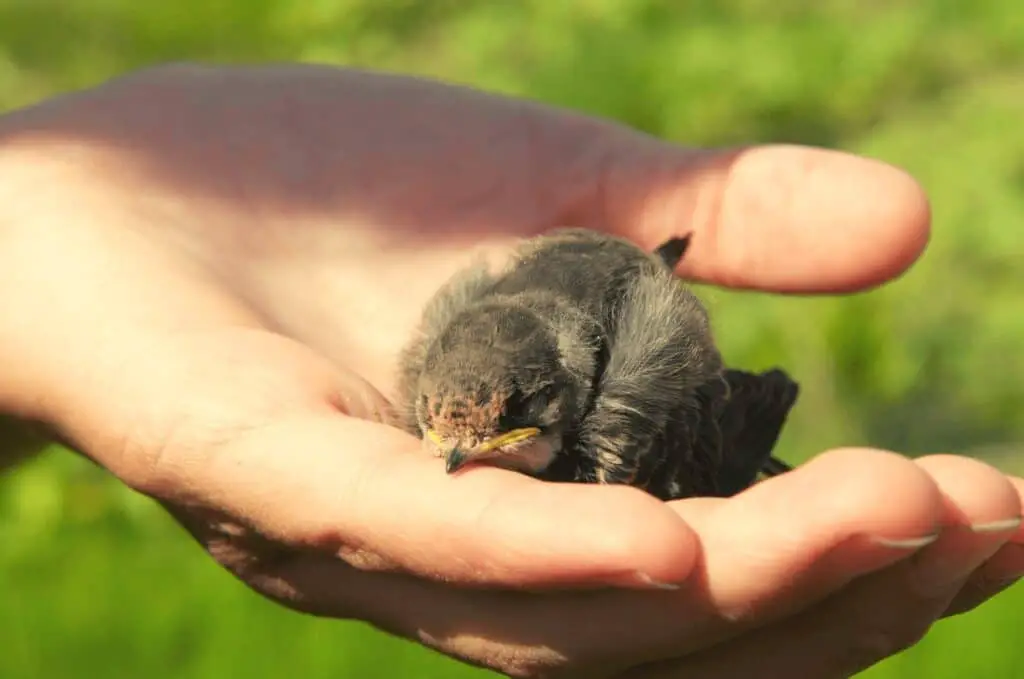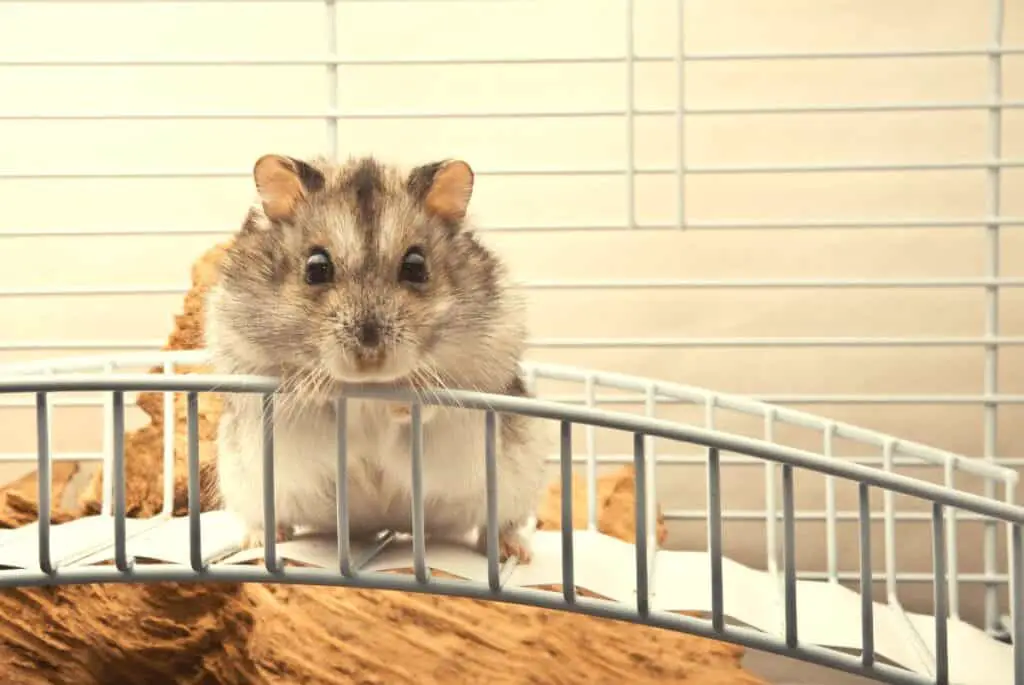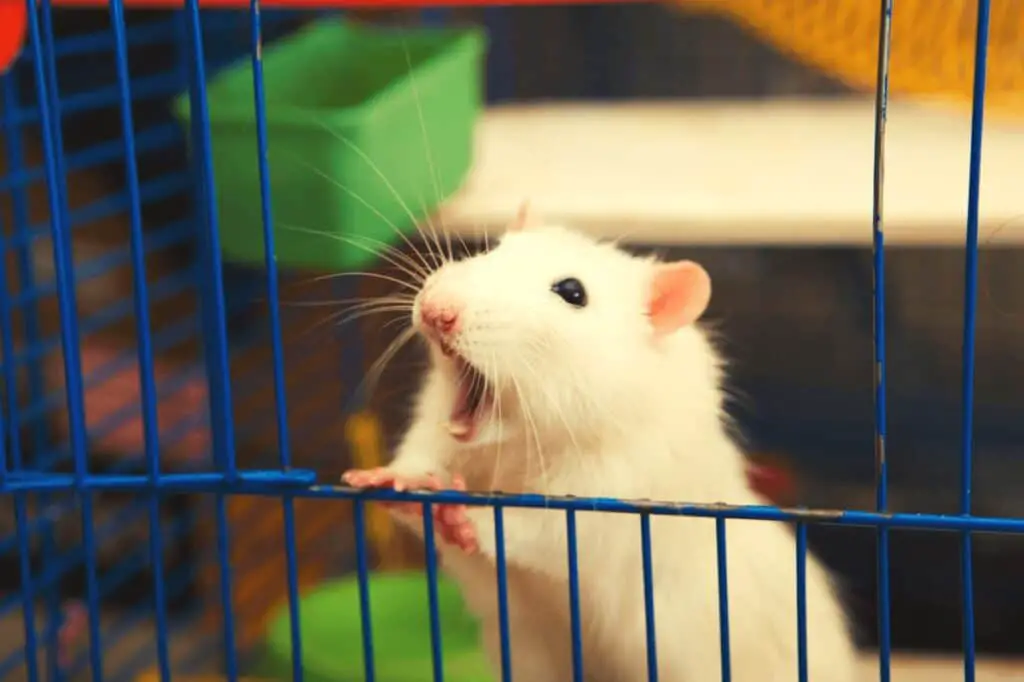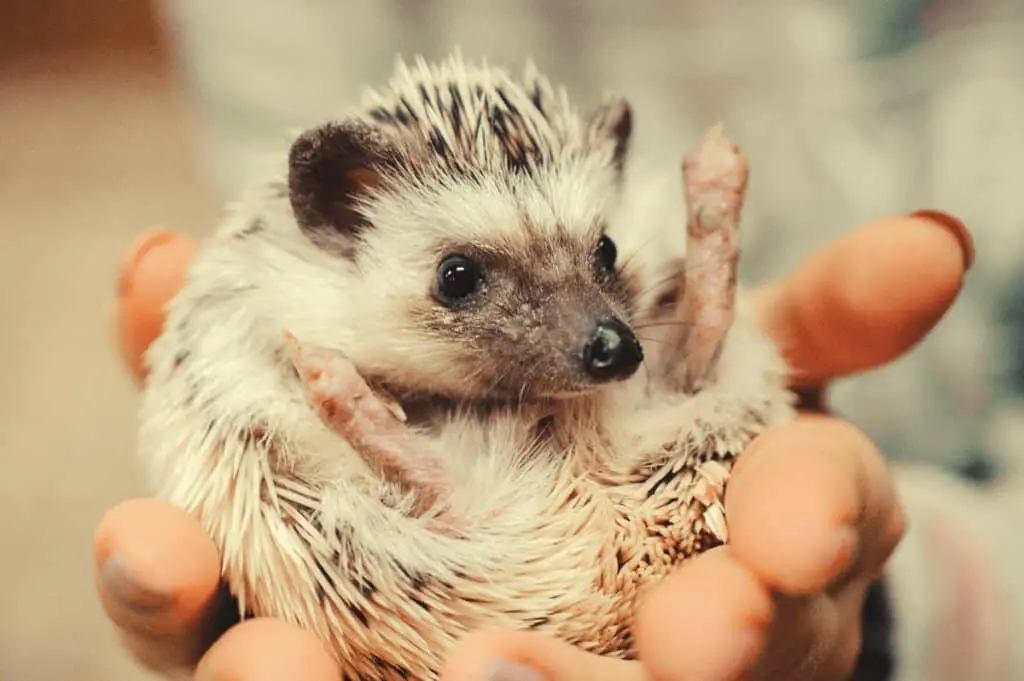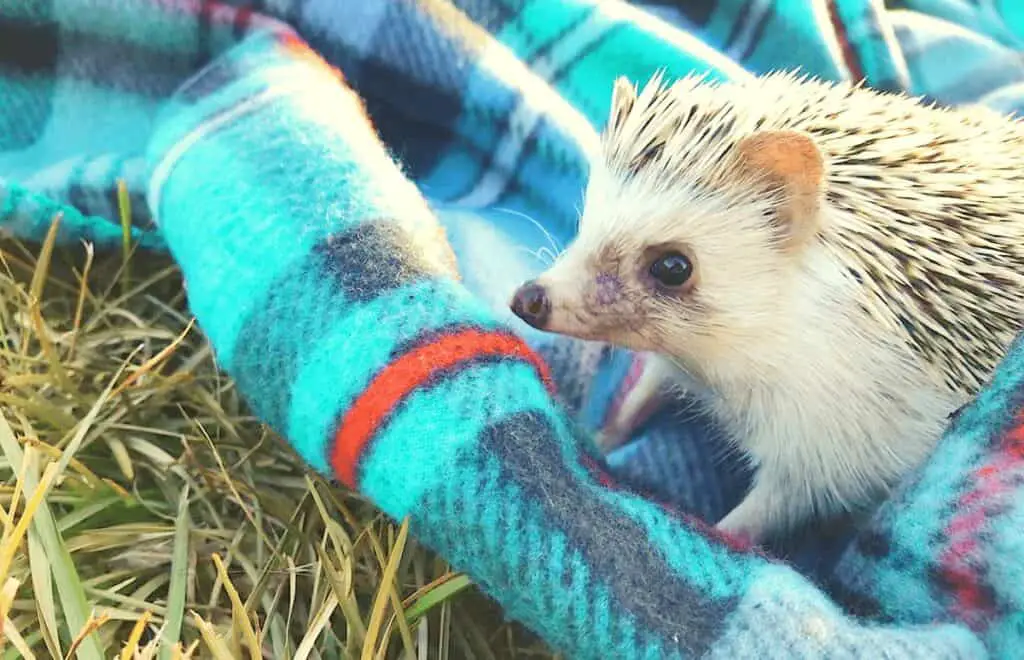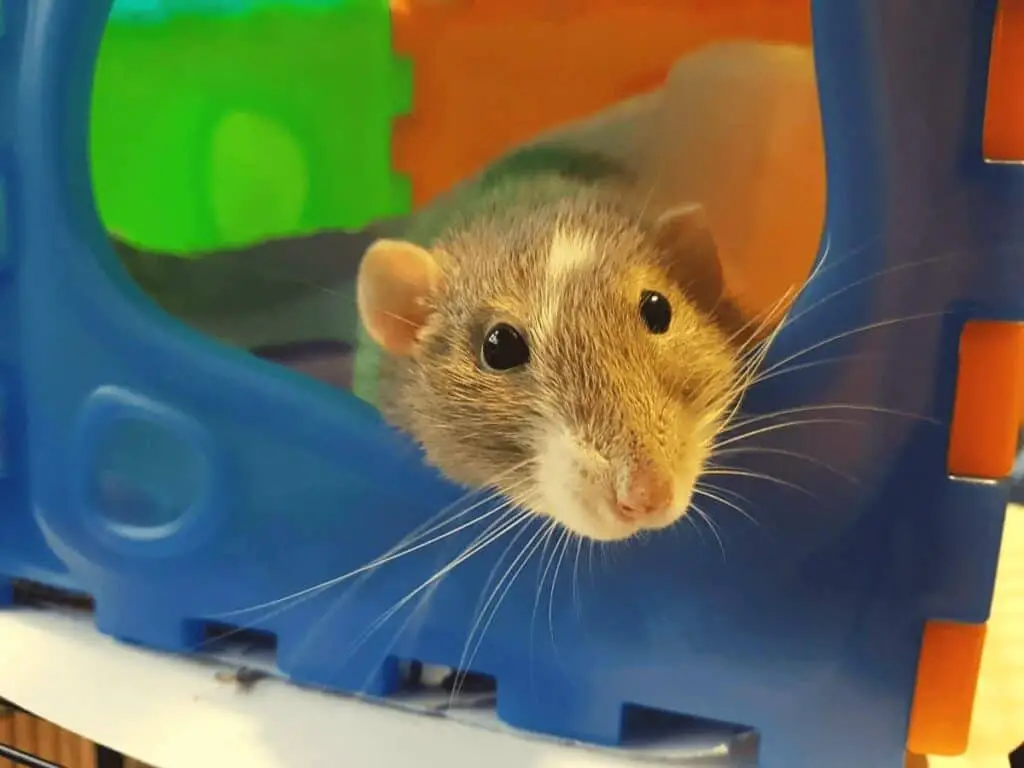Can rats eat broccoli? Yes, they can and it’s actually very healthy for the little critters. Wondering what parts of the plant are good and how they have to be prepared? After reading this article, you will know everything about rats and broccoli.
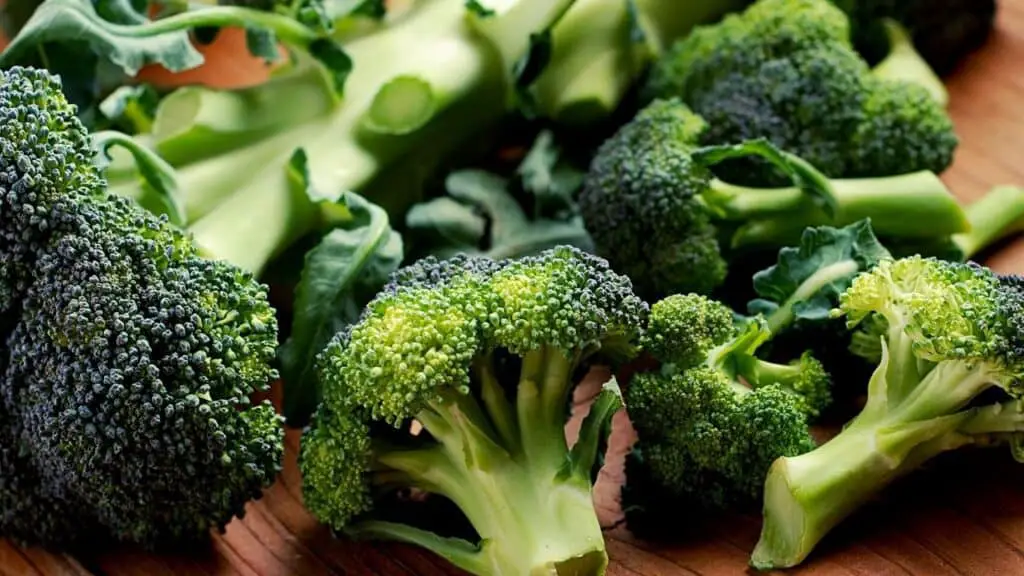
As a kind of superfood broccoli is often recommended by nutritionists. Especially vegetarians and vegans talk a lot about it. Indeed rats are omnivores but a huge part of a healthy diet (10 to 20 %) should be leafy greens. And this green can be a large part of it.
Is Broccoli Good For Rats?
You already have the answer, but I want to go into some details now. Accordingly to Healthline broccoli has some interesting health benefits for humans. [1] It:
- contains a lot of vitamins, minerals and bioactive compounds
- contains potent antioxidants
- may reduce inflammation
- may aid blood sugar control
- may support heart health
- promotes healthy digestion
- may slow mental decline
- may help slow the aging process
- may support dental health
- may promote healthy bones
Even if I’m not a veterinarian and have no medical background the list seems to be impressive to me. Assuming only half of it is actually true it would still be awesome.
That said, fresh legumes are a good thing and part of the natural diet of rats. This one definitely enriches this part of your critters’ life.
Fun fact: Did you know that the plant is cruciferous? That is the same plant family cabbage, kale and cauliflower belong to.
Nutritional Value Of Broccoli
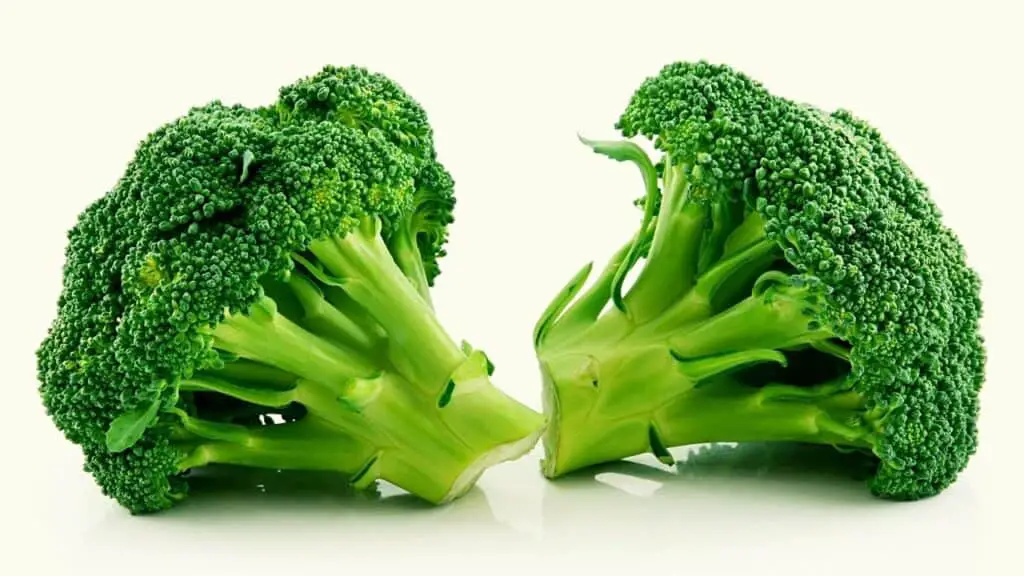
Let’s dive into the nutritional value of the veggie. In this section, I want to take a look at macronutrients first before I come to the micronutrient. I’m sure there is a lot of interesting information.
By the way, did you know that broccoli is approximately 89 % made of water?
Below you find a table of the nutritional value of raw broccoli per 100 g:
- Calories: 34
- Carbohydrates: 6.6 g
- Sugar: 1.7
- Fiber: 2.6 g
- Protein: 2.8 g
- Fat: 0.4 g
All the data is from nutritiondata.self.com. With fruits, the actual concentrations can change a bit depending on where and how the plants were grown.
As you can see, broccoli is very low in calories. Literally, there is nothing in it that can lead to obesity. If your rats like it, you can give them as much as they can eat.
The goods things aren’t coming to an end here.
High amounts of vitamin c and vitamin k are contained and also essential for the well-being of your rats. But you can find even more in broccoli:
- Vitamin c
- Vitamin k
- Vitamin b6
- Riboflavin
- Folate
- Pantothenic Acid
And minerals:
- Calcium
- Magnesium
- Iron
- Phosphorus
- Potassium
- Manganese
- Selenium
The list isn’t even complete and you will find many other quality nutrients. Beta carotenes are a good example and the reason for all the benefits I mentioned in the section above.
How Much Broccoli Can Rats Eat?
There is no limit to the amount of broccoli a pet rat can eat. You don’t have to worry about anti-nutrients that could potentially be toxic.
Rats need at least 10 to 20 % fresh food in their diet. A large portion of that can be broccoli and you do nothing wrong with feeding it daily.
That said, the fresh part of an optimal diet should be of different vegetables, legumes and fruits. Eating the same stuff every day is boring. Not only for us humans but also for rats.
Remember to give high-quality rat food as the foundation of a balanced diet.
Raw, Cooked Or Steamed Broccoli?
Honestly, this depends. In my opinion, raw broccoli is the best option as some of the bioactive compounds are destroyed during cooking. Their sharp teeth are definitely able to chew through the hard parts of the plant.
If you feed the raw version, be prepared for some flatulence. You can reduce the risk of a stinky smell by introducing new food slowly. Sometimes the stomaches of our little friends need some time to accustom.
Some rats won’t eat the raw plant. Don’t skip the idea of this veggie all together but try other methods. Steamed or cooked broccoli can do the trick in most cases. And I would prefer these over not feeding any of it at all.
If this is your rat, don’t boil the vegetable too soft. The longer you cook it the more vitamins decompose. Steaming is a good way to gently prepare the plant.
Don’t use salt, sugar and spices for cooking. But you can use the opportunity to give your rats some garlic which most won’t touch if given solely.
Extra tip: Frozen broccoli is often as good as the fresh plant. So you are not tied to the offers at your local supermarket. Just unfreeze it and handle it like described above.
Are Stems, Stalks And Leaves Ok?
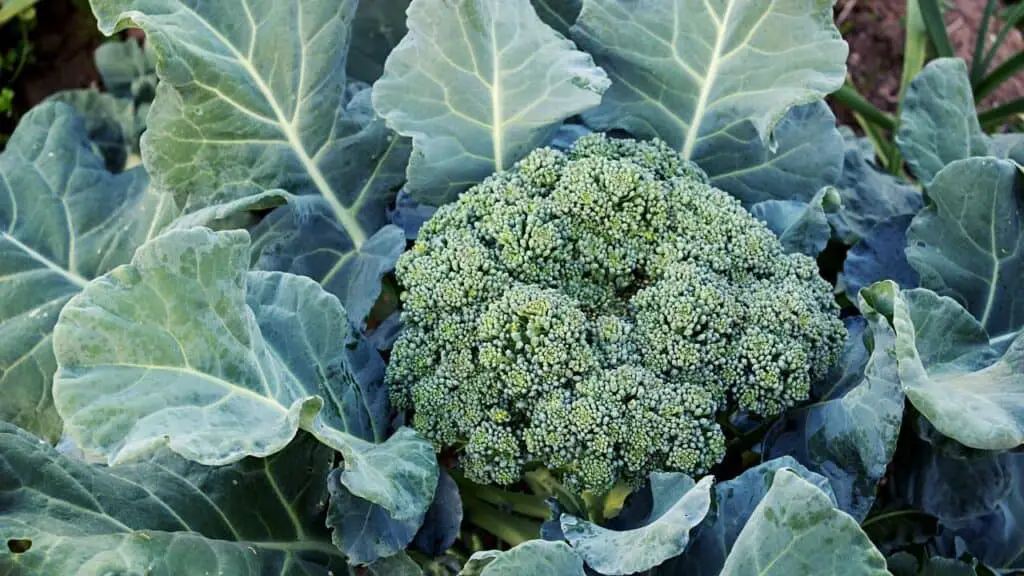
Yes, all parts of the plants are good for rats. You don’t have to leave anything out.
This also offers new possibilities as we tend to not use broccoli stalks in our diet. Sort all the parts you don’t want to eat out and cater them to your rats.
The good thing is most rats that prefer it cooked won’t refuse uncooked broccoli leaves.
Broccoli Alternatives
One vegetable is not enough and you will need to add some other colorful vegetables and fruits. Additionally, it’s always good to have options you can fall back on. In the list below you find the one or another green vegetable that is safe for rats:
Vegetables:
- Carrots
- Cauliflower
- Choy
- Cucumber
- Green beans
- Kale
- Lettuce
- Spinach
Fruits:
- Apples (without seeds)
- Blackberries
- Blueberries
- Cherries
- Cranberries
- Grapes
- Kiwis
- Melons
- Papayas
- Raspberries
- Strawberries
As you see, it’s not difficult to find some healthy snacks your rats will like. Offering a variety will also enrich the diet and bring more fun into the life of your little friends.
Feeding the little critters with their favorite food is also something most rat parents really enjoy. With the things from this list, you don’t have to get a bad conscience as everything is healthy and low in calories.
Wrapping Things Up
Rats can have broccoli plants and it is a great way to bring a healthy green vegetable into their diet. The uncooked plant contains the most vitamins and minerals but you can gently steam it if your rat prefers it softer.
Another good thing about the vegetable is, that rats can eat every part of it. Leaves, stalks, stems and everything you don’t want to have on your own plate can go into the rat cage. Just make sure that it’s fresh and not rotten.

